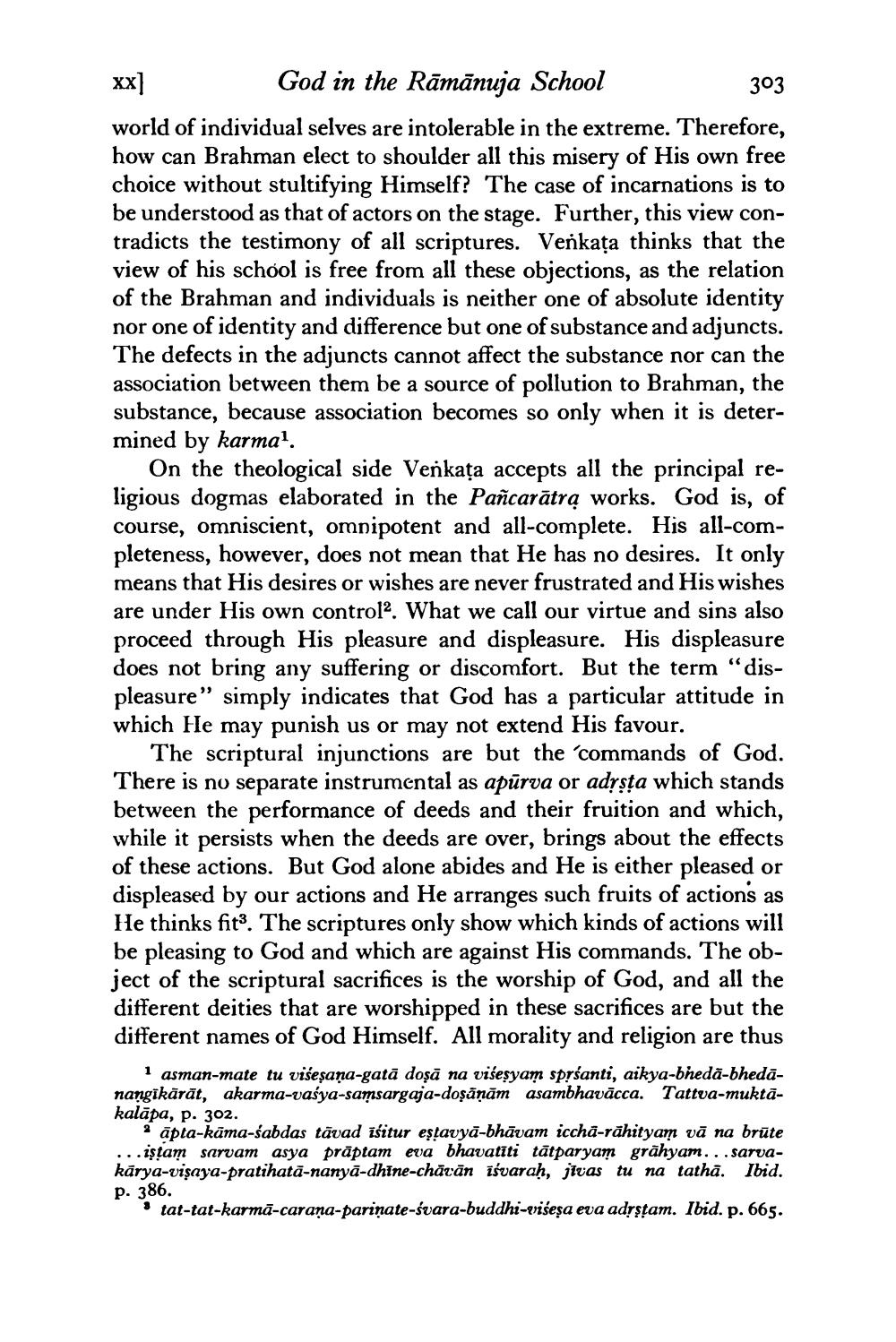________________
XX
God in the Rāmānuja School
303 world of individual selves are intolerable in the extreme. Therefore, how can Brahman elect to shoulder all this misery of His own free choice without stultifying Himself? The case of incarnations is to be understood as that of actors on the stage. Further, this view contradicts the testimony of all scriptures. Verkața thinks that the view of his school is free from all these objections, as the relation of the Brahman and individuals is neither one of absolute identity nor one of identity and difference but one of substance and adjuncts. The defects in the adjuncts cannot affect the substance nor can the association between them be a source of pollution to Brahman, the substance, because association becomes so only when it is determined by karmal.
On the theological side Verkața accepts all the principal religious dogmas elaborated in the Pañcarātra works. God is, of course, omniscient, omnipotent and all-complete. His all-completeness, however, does not mean that He has no desires. It only means that His desires or wishes are never frustrated and His wishes are under His own control2. What we call our virtue and sins also proceed through His pleasure and displeasure. His displeasure does not bring any suffering or discomfort. But the term “displeasure" simply indicates that God has a particular attitude in which He may punish us or may not extend His favour.
The scriptural injunctions are but the commands of God. There is no separate instrumental as apūrva or adrsța which stands between the performance of deeds and their fruition and which, while it persists when the deeds are over, brings about the effects of these actions. But God alone abides and He is either pleased or displeased by our actions and He arranges such fruits of actions as He thinks fit?. The scriptures only show which kinds of actions will be pleasing to God and which are against His commands. The object of the scriptural sacrifices is the worship of God, and all the different deities that are worshipped in these sacrifices are but the different names of God Himself. All morality and religion are thus
1 asman-mate tu višeșaņa-gatā doșā na višesyam sprśanti, aikya-bhedā-bhedānangikārāt, akarma-vasya-samsargaja-doşāņām asambhavācca. Tattva-muktakalāpa, p. 302.
i apta-kāma-sabdas tāvad isitur eștavya-bhāvam iccha-rāhityam vā na brüte ...istam sarvam asya prāptam eva bhavatīti tātparyam grāhyam... sarvakārya-visaya-pratihatā-nanya-dhine-chātān īśvarah, jivas tu na tathā. Ibid. p. 386.
• tat-tat-karmā-carana-parinate-svara-buddhi-visesa eva adrstam. Ibid. p. 665.




